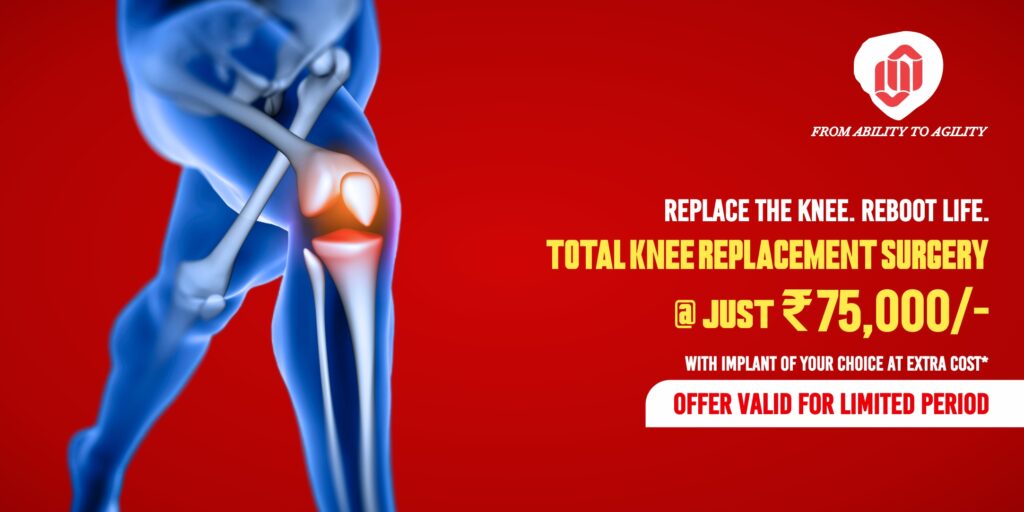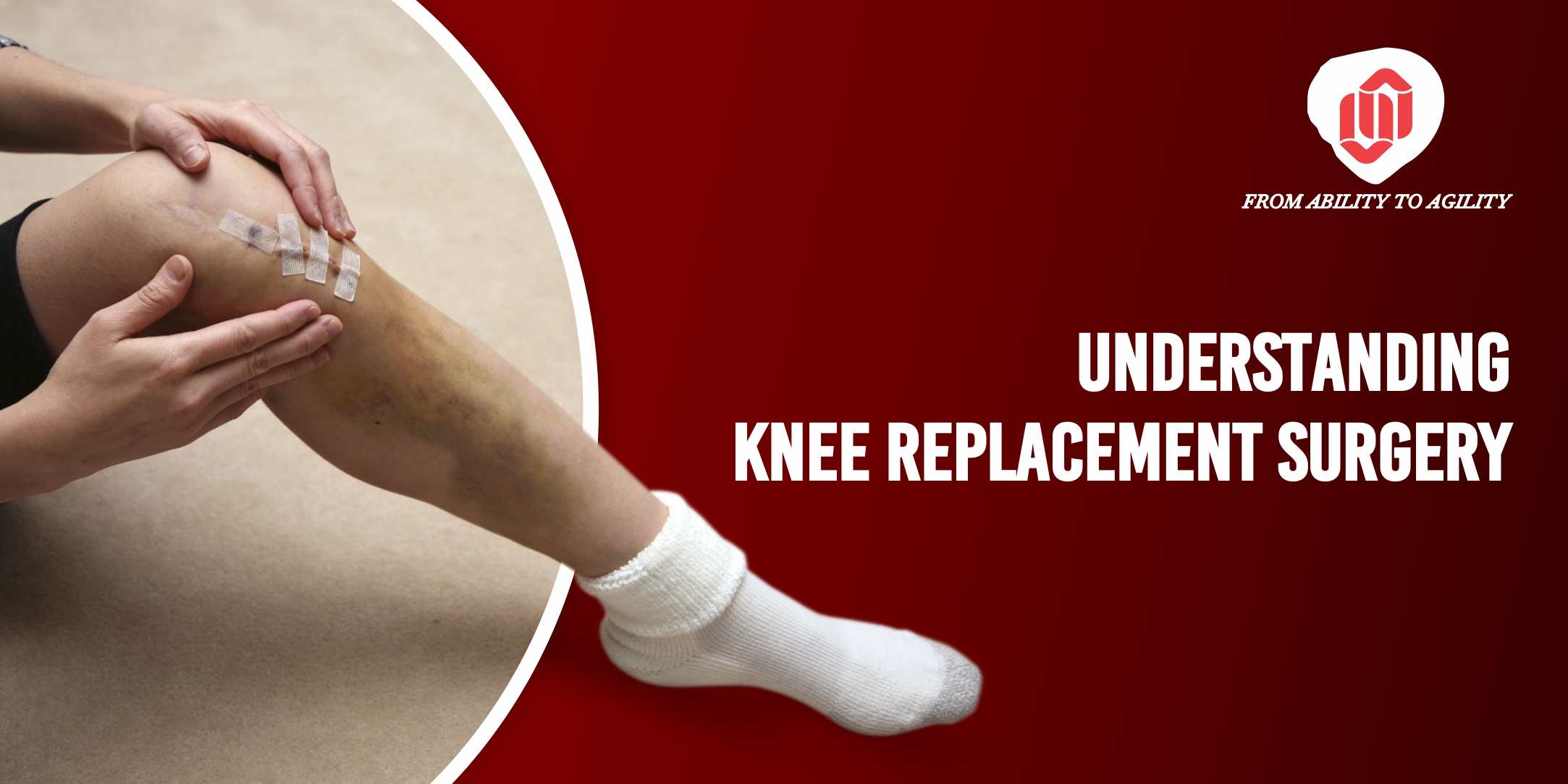Knee replacement surgery, also known as knee arthroplasty, is a medical procedure designed to relieve pain and restore function in severely damaged knee joints. It’s typically recommended for individuals suffering from advanced arthritis or significant knee injuries that haven’t responded to conservative treatments.
TYPES OF KNEE REPLACEMENT SURGERIES
Total Knee Replacement:
Total Knee Replacement (TKR) surgery is a procedure performed to alleviate severe knee pain and restore function in patients with advanced arthritis or significant knee damage. During TKR, the damaged cartilage and bone of the knee joint are replaced with artificial components made of metal and plastic. These components mimic the natural knee joint, allowing for smooth movement and reduced friction.
The surgery typically involves several steps: first, the damaged surfaces of the thigh bone (femur), shin bone (tibia), and kneecap (patella) are removed. Then, the prosthetic implants are securely placed onto the prepared bone surfaces using specialized surgical cement or techniques that allow for bone to grow into the implant over time. This provides stability and support to the knee joint.
Total Knee Replacement surgery aims to relieve pain, improve mobility, and enhance the overall quality of life for patients suffering from chronic knee conditions that have not responded to other treatments. With advancements in surgical techniques and implant materials, TKR has become a highly successful procedure with a high rate of patient satisfaction and long-term functional outcomes.

Partial Knee Replacement: Also known as unicompartmental knee replacement, it involves replacing only the damaged part of the knee joint.
ADVANTAGES OF KNEE REPLACEMENT SURGERY:
- Pain Relief: Significant reduction in knee pain, leading to improved quality of life.
- Improved Mobility: Restored knee function allows patients to resume daily activities with less discomfort.
- Longevity: Modern prosthetic implants can last for many years, providing lasting relief.
DISADVANTAGES OF KNEE REPLACEMENT SURGERY
- Recovery Time: Rehabilitation can be lengthy, requiring patience and commitment.
- Risks: Potential risks include infection, blood clots, and implant wear over time.
- Activity Limitations: While mobility improves, some high-impact activities may need to be avoided to prolong the life of the implant.
WHAT IS ADVANCED KNEE REPLACEMENT SURGERY?
Recent advancements include minimally invasive techniques, computer-assisted surgery, and custom-made implants tailored to individual patients. These innovations aim to enhance surgical precision, reduce recovery times, and improve overall outcomes for patients undergoing knee replacement surgery.
In conclusion, knee replacement surgery offers significant benefits for those suffering from chronic knee pain and impaired mobility. With ongoing advancements in technology and surgical techniques, patients can expect improved outcomes and faster recovery times, making knee replacement a viable option for regaining active lifestyles.
